Oh Lord, we're stunned.
We're angry.
We're disillusioned.
We're afraid.
Even several days later, we still wonder how in America could verdicts like "not guilty" come down when a life was clearly taken.
We wonder how a mother, a father, an entire family can go on after all they've lived through.
We wonder how boys of color can walk on streets of our cities and mothers who wait for them without being overcome by fear.
We wonder how long, O Lord, will we hear talk about race in conversations with words of "us" and "them" because many do not know each other in any other way.
We wonder how long will people of faith will cower to the conversation table. As wrong as color= privilege in our world, and we can only move to change when we start with the truth.
We wonder how long will we lie to each other: "No, our nation does not have a race problem."
We wonder how long those with prophetic pulpits will ignore their greatest opportunity on Sunday morning to begin such a dialogue.
We wonder how long O Lord, will all of us suffer simply because injustice happens and happens again and truth is not simply brought to the light? For the great preacher, Martin Luther King once said, injustice anywhere is a threat to justice everywhere. And it is true.
So, we wonder.
And we wait.
We wait for what you alone can bring to our nation.
Justice. Hope. Mercy. Understanding. Longsuffering. Peace.
Help us know how to wait together. Help us have swift feet to move toward righteousness together. Help our swift feet know what direction to move in together.
AMEN
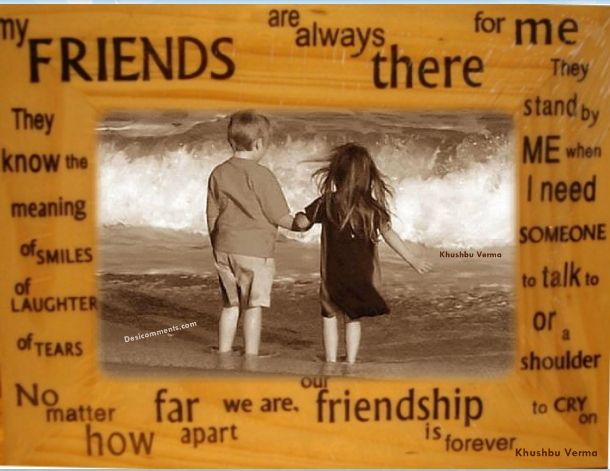 I grew up in the type of Christian community that would frequently say things like:
I grew up in the type of Christian community that would frequently say things like:
"Work on your relationship with God above all else."
And, "If you let anything come between your relationship with Jesus, then your faith is off track."
For while the intention of such teaching was probably was something like, "Make your faith life as a priority" (which is probably something that would come out of my mouth, even today) what I heard in my head as child was, "You can't have friends who you'd count closer to you than God."
As if friendship was some sort of divine vs. human competition . . .
It was as if God could not be present to us in my friends. . . .
But as much as I grew to love the divine presence in my life as teenager and college student-- sometimes Jesus' presence (in a spiritual sense) wasn't enough for me.
I needed friends. I didn't think Jesus made me to be so lonely.
I'll say it again: I needed friends. Having Jesus in my life didn't take this from me as hard as I tried to believe it would.
But, the church seemed to keep saying "Pursuing close friends would make Jesus jealous."
When I was in seminary and the relational bolts within me began to shift, I had a spiritual director who provided a light bulb moment. She kept noticing how uncomfortable I became when friends got too close to me. And she was right, I didn't like the vulnerability that it required. I was scared in fact. I thought, was I somehow cheating on Jesus if I really loved my friends? Would people really like me if they actually knew me?
But then this was the sticking point that she offered: "You can only be as close to God as you allow yourself to be to other people."
Of course this is not an "always true" statement (for there are countless faithful folks called to the ministry of monastic life or even hermit life for the reasons of prayer and un-interrupted communion with God), but I think there's great wisdom in it.
We can only be as close to God as we allow ourselves to be with other people.
There's power in community isn't there? In deep and abiding community with others the real stuff of our life comes out.
And by this I don't mean community with friends you have dinner with causally once a month or friends from the bleachers at your kids' soccer games-- I mean authentic friendship: those who know what makes you afraid, those who have seen you cry uncontrollably and vice versa, and those who can look in your eyes and know you're stewing about something even without you having to utter a word.
With people like this, there's no hiding. There's no major missing puzzle pieces as to what makes you tick held from the other. There's no shying away from the most unlikable parts of our personalities. It's really honest living for sure.
And when we get this honest-- I believe, our God who is the author of all truth shows up!
Roberta Bondi in her book, To Pray and To Love writes this: "The fulfillment of our deepest purposes and profound longs for God can never be separated from our love of God's own images among whom we live."
We learn about God, she is says, as we abide in relationship with those closest to us. In fact, we are MISSING out on parts of the personality of God when we don't get close to others.
Bondi even goes as far to write that the lack of intimacy many of us have in prayer occurs because we've never really learned how to talk openly and honestly to others. If we can't talk honestly with another human being, how could we talk honestly with God?
Bottom line is this: one of the most spiritual acts you and I could pursue right now and in the weeks to come is deepening our friendships. It might be the single greatest thing we could do to learn how to be closer to God.
It has taken me many years to shake off the baggage of my childhood in this regard. But I'm so glad I'm in the process of re-wiring all of this within me.
In friendship we both get to learn about and practice what it means to abide in God's love. So anybody got a friend they need to call today? Or meet for lunch soon? I know I do.
For all of those who woke this morning with joy and sunshine, only to end their day in utter devastation.
Lord, in your mercy hear our prayer.
For all those who have no place to lay their head this night, left only to the kindness of strangers.
Lord, in your mercy hear our prayer.
For all of those who hid in bathtubs, horse stalls and storm shelters and survived . . . and for all of those who didn't.
Lord, in your mercy hear our prayer.
For all of the children whose homes and schools are destroyed and whose innocence was taken on this day.
Lord, in your mercy hear our prayer.
For all those relief workers who are right now searching for those who are crying for help.
Lord, in your mercy hear our prayer.
For all those who wonder why life is worth living after moments like this.
Lord, in your mercy hear our prayer.
For all of those who ask, "Why God?" on a day of so many tears.
Lord in your mercy hear our prayer.
Come close. Keep this city safe tonight. Be near to the crying, the hurt, those sitting in the shambles. Lead neighbors to be the hands and feet of Christ on earth to those who need it most. Break through light in the darkness and peace to the most restless of hearts.
AMEN
This week I've been reading Anne Lamott's latest: Help, Thanks, Wow. It's a book about three essential prayers that Lamott says are necessary for all of us to go back to over and over again. Saying to God, "Help!" "Thanks!" and "Wow!"
The first two sections were typical Anne Lamott good-- honest, raw, and real. So real that her words make you want to figure out how to write like this in your own voice.
But the third section has captured my attention in way that I think we don't talk about enough as people of faith: Wow!
Lamott writes: "The third great prayer, Wow, is often offered with a gasp, a sharp intake of breath, when we can't think of another way to capture the sight of shocking beauty or destruction, of a sudden unbidden insight or an unexpected flash of grace."
And when you put it like this, I don't think we don't know how to say wow. Sure, it's a simple enough word, but I can't think of the last time I heard it in a conversation.
Maybe it is because we don't know how to stop.
Maybe it is because speechlessness as a prayer doesn't seem to equate to "real" prayer in our minds.
Maybe it is because we are people who like to rush on through to the next project, the next meal, the next adventure that we keep our eyes shut to "Wow" most of the time.
This week as I've been traveling with the team from Feed The Children in Guatemala, there have been a lot of wow moments.
The children getting a book for the first time.
The smiles of the mothers.
The lake.
The sunshine.
The birds (and flying beatles) waking us up in the morning at sunrise.
As we've been thrust out of our normal day-to-day routines saturated in the beauty of a country with lush hills and valleys, colorful clothes and flavorful foods, it is much easier to say wow. Especially as we've served meals to children with the sparkle of gratitude in their eyes for a simple plate full of tamales, rice and beans, you just can't help but smile in wow!
But I don't think you have to go out of the country or into a new experience to have a "wow" moment or to offer up a "wow" prayer. Such opportunities are all around us, I believe.
Our children learning to say please.
Waking up before our alarm goes off.
An unexpected invitation to dinner.
A card of thanksgiving.
What about you? what is making you say "Wow" where you are today? Here's some photos of mine.
Resurrection Unfolding: Openness
Acts 11:1-18
Preached at Broadneck Baptist Church, Annapolis, MD
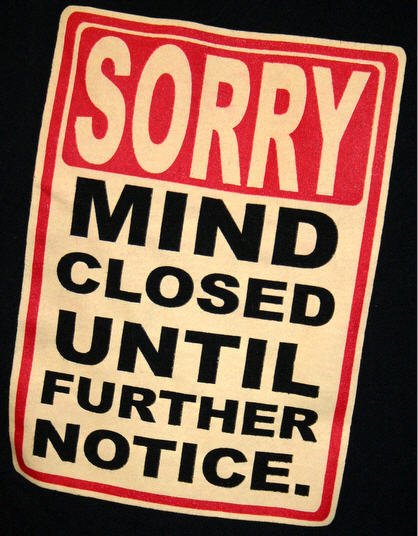 I don’t know about you, but it is easy for me to think at certain points of my own story of faith that I have “arrived” at what is the right way. That I’ve finally had enough education, enough life experience, enough personal reflection to make a sound judgment on what I believe on a particular issue is right.
I don’t know about you, but it is easy for me to think at certain points of my own story of faith that I have “arrived” at what is the right way. That I’ve finally had enough education, enough life experience, enough personal reflection to make a sound judgment on what I believe on a particular issue is right.
I’ve talked to enough people.
I’ve read enough books.
I’ve been in church long enough. My mind is made up and that’s that.
Before I entered seminary in the summer of 2003 one such moment in my life occurred. I had figured out, or so I thought at the time, the only “proper” or “theologically sound way” to talk about God.
All of this came about thanks to a new friend introducing me to a new genre of books: feminism. These new books I began reading described the world in ways I’d never heard of during my 20+ years of growing up in small, Southern Baptist centric Tennessee towns.
In my childhood church, when we prayed, we always prayed to our “Heavenly Father” called God “He” and if you really wanted to be seen as extra holy, you’d be sure to capitalize in writing any pronoun reference for God.
But after reading and discussing texts new to me like Sue Monk Kidd’s Dance of the Dissent Daughter, I believed I’d arrived at an epiphany. I’d been taught all wrong. No, no. Never again would I pray to God in male dominate language. Never again would I use the word “He” to refer to God. God wasn’t a man or a woman after all—I believed so why did we refer to God as such?
As part of my new personal practice of referencing God without a gender association, I simultaneously started looking down on those who weren’t as “enlightened” as me. I don’t believe such was intentional. Or even such thoughts often left the confines of my brain.
But, because I’d made up my mind on this—openness to others was out of the realm of possibilities.
In fact, one time, I dared to correct my husband’s dinnertime prayer, in which addressed God as, “Heavenly Father.” Later, I reminded him in my serious preacher tone of voice: “If he was going to say father than he needed to say mother too.” You can imagine how well that went over and I’ve barely since lived such down (the prayer criticizing incident as we now refer to it as)—not one of the shinning star days of our married life for sure …
But is this what growing in our faith is really supposed to look like? Illumination that puffs us up with self-righteousness and isolates others who may think or have a different experience of God than we do? Is this what resurrection unfolding in our lives becomes?
I know that for these past four weeks, Pastor Abby has been helping you stick closely to the idea of resurrection as a season, of resurrection as something that is not a one-time experience, but something that unfolds and finds resonance in surprising ways over time. And such is certainly the case with our resurrection story for today.
In Acts 11, we find a story that asked Peter and asks us, as readers, today to reconsider how open we are to the fresh wind of the Spirit moving among us. Especially as the Spirit’s wind moves through our most cherished set of religious, spiritual, Biblical, or whatever you want to call them beliefs—and says:
Why are you excluding those who believe differently from you?
And, what might you learn about God if you include them?
What I find most interesting about Acts 11 is that it is not the first time we’ve heard the details of the interaction between Peter and Cornelius. Probably the tale you’ve most heard read of this story (if you’ve heard it before) comes from the Acts 10.
In Acts 10 we learn that Peter—the disciple of Jesus, Peter—has a vision while he is on the roof praying. In this vision he see the heavens being opened and a something like a large sheet coming down from heaven full of all kinds of animals. And Peter, hears a voice saying, a voice he believes to be the Lord: “Get up, Peter. Kill and Eat.”
Such a directive did not seem to Peter to be of the Lord. For this word of “eat whatever kind of meat you’d like” went against everything he’d believed to be true about purity.
And not just the kind of purity for purity sake, but prescribed words from the Torah, words that told generations of Jews what relationship with God entailed. There was just no way that the Lord would ask him to associate with people like that!
But after asking the Lord again, Peter receives confirmation that he’d indeed heard correctly. And before Peter could over think his way out of his vision, several men from the household of Cornelius, a non-Jew (who also just had a vision from the Lord about making contact with Peter) showed up. These Gentile men asked Peter and his friends to journey with them to Caesarea.
Peter goes, shares the gospel with this non-Jewish crowd at the home of Cornelius, and as a result the Holy Spirit comes upon all those who gathered. And, then, Peter could not deign that God loved these kinds of people with whom he had previously kept at arm’s length. Peter saw new life coming to this family before his eyes! Soon a baptismal service was in order to make it all official.
In this life altering moment, Peter proclaimed: “I now realize how true it is that God does not show favoritism but accepts men from every nation who fear him and do what is right.”
But by time we get to the re-telling of the story in Acts 11 (where Cornelius’ name is not even mentioned specially by the way), we find Peter giving testimony to how this experience opened him up.
For word was getting back to Jerusalem and the established religious guard were upset: Jews eating with Gentiles? No way! If the purity laws were out, in the way of Christ, what was next? As is true of most conversations like this, fear paralyzed.
Yet, in the midst of it, what was Peter going to say for himself?
What follows is not an argumentative debate or even a lecture in proof texting the Torah, rather it is Peter, in a very pastoral way, in a very loving and patient way telling his story of what the movement of resurrection had looked like in his life.
He brings the conversation back to Jesus—how Jesus taught his followers that after he left the earth, the Holy Spirit would be given, the Spirit that would lead this followers in all things.
Peter gives personal witness to the fact that his heart and mind changed. Saying, in the way of resurrection there’s one sign that emerges as guide and that is: the Holy Spirit.
Peter speaks boldly in verse 17 when he says, “If then God gave them (referring to the Gentile believers) the same gift that he gave us when we believed in the Lord Jesus Christ, who was I that I could hinder God?”
Or, in other words, “Listen fellas, if the Spirit is a work, you can’t discrimmate. You have to accept. You have to be open to what resurrection looks like even if it is nothing like you’ve ever considered before.”
The believers at Cornelius’ house certainly had the Spirit, and for this, Peter explained to the Jerusalem leaders that openness was unavoidable.
The first time I ever preached a sermon on the Peter and Cornelius story, I was a new full-time pastor as an associate. I had to wait my turn to preach and it when it was finally my turn to speak, I wanted it to be good—piercing, really hitting a home run. When I found out that Acts 10 was the lectionary on that day, I was thrilled. I was thrilled because I knew this text would give me the opportunity to call out the congregation on all the ways I felt their actions did not show openness to the gospel. It was a home-run in the making: for I had so much to say!
But, looking back on it now, I think the particularities of what I defined as “openness” mostly missed the point. For, when I re-read this sermon again this week, I realized that I preached a message that was in line with beliefs that held true for me at that time—acceptance of people I accepted, theology of people I believed in, and acknowledgment of doubts I had already explored in my own life. I hoped the sermon would encourage the congregation to be more like me.
But is this really what openness to the Spirit is all about? Converting people to believe exactly as you do?
Anne Lamott has become famous for saying: “You can safely assume you've created God in your own image when it turns out that God hates all the same people you do.”
And it’s true, isn’t it? While it is easy to create an agenda that you think is the “proper way” or the “right way” or the most “theologically astute way,” it’s not always the God way.
The Spirit really cares little for all our nonsensical categories.
The Spirit really cares little for who we think was made more beautifully in God’s image.
The Spirit really has no time to waste on those who can be approved by church councils and denominational boards for who has the most pristine theological pedigree.
The Spirit lives and moves and breathes in all kinds of people . . . even people, from our perspective, that we find very little common ground with actually often it is the Spirit moves in people we don’t agree with very much.
Professor Roberta Bondi of Emory University Divinity School says in her volume, To Pray and to Love this about being open to the Spirit in one another: “the goal of life . . . if you want to live by love is not to live by principles . . . rather relationship.”
Of course this doesn’t mean that there aren’t times when living as God people in a particular community as you are doing here that you won’t need to be prescriptive or prophetic. Or that principles of faith don’t matter. Or that there won’t be times when the church will discern together on something and not every one will come along 100% and relationships will suffer.
But, it does mean that as we are open to the Spirit, our theology will shift as we grow and the people in whom we converse with about our faith to might just shift too. And, our church has to reflect this kind of growth.
Rather than sticking with labels people place on our faith or our communities like, “progressive” or “conservative” or “justice centric” or “evangelistic” we’ve got to be ready to move with the Spirit, even if there isn’t a label for what exactly it means.
I don’t know what kind of people in your life you have trouble seeing the Spirit of God in or welcoming in your community—
-people who strongly support a political party you don’t belong to
-people who make poorer driving decisions in the car than you do
-people who live in neighborhoods you don’t feel comfortable in
-people who live in regions of this world you don’t like too much
-people who worship with louder or softer voices than you prefer
But, regardless, we are all called out on our exclusive behavior of one kind or another and asked us to be open to the new.
For me today, if push came to shovel and you asked me how I prayed, I’d tell you I rarely use male language for God- as I have since 2003. But, I have been gently led the Spirit over the years, in particular in the last year to be more inclusive in conversation with those who do. After all, Jesus calls God His Father throughout the Gospels . . .
 Not only does this make family mealtimes more nurturing and loving environment for both Kevin and me too, but it opens me up to learnings about God that I might miss if I am too stuck on the “proper way.” And, it has given me some friends back and let me to new ones too—friends that might not call God the same thing I do, but who are full of the Spirit with much to teach.
Not only does this make family mealtimes more nurturing and loving environment for both Kevin and me too, but it opens me up to learnings about God that I might miss if I am too stuck on the “proper way.” And, it has given me some friends back and let me to new ones too—friends that might not call God the same thing I do, but who are full of the Spirit with much to teach.
In a world of words flying across the internet and on cable tv about why this party or this type of person or this kind of church is bad for believing or doing a certain thing, what a resurrection it could be if we let the Spirit unfold in us direction.
If we let the Spirit unfold in us expanding wisdom
If we let the Spirit unfold beyond labels we place on ourselves or others
If we let the Spirit unfold in us renewed community
If we let the Spirit unfold in us most of all, love.
AMEN
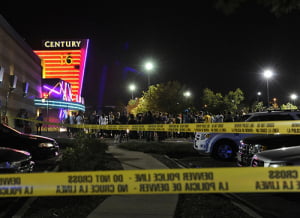 For those who have journeyed to the life beyond after watching what would be their last film,
For those who have journeyed to the life beyond after watching what would be their last film,
Lord, in your mercy, hear our prayer.
For those who simply wanted a night out of enjoyment at a movie theater and find themselves in the most bewildering shock of their lives as memories of confusion continue to play in their minds,
Lord, in your mercy, hear our prayer.
For those who will continue to support, treat, help and love on those now in physical, emotional and spiritual pain in Aurora and for the long days of pain to come,
Lord, in your mercy, hear our prayer.
For those who have lost a daughter, a son, a brother, a sister, a friend, a teacher, a lover, a neighbor to this unexplainable event who are now planning funerals they never believed they'd attend,
Lord, in your mercy, hear our prayer.
For all those around the globe who woke up this day with the people of Aurora on their minds, wondering how they could believe in a God anymore who could let this kind of death, injury and heartache happen.
Lord, in your mercy, hear our prayer.
For those who will use this moment in time to push their own political agendas that are rooted in ego rather than love,
Lord, in your mercy, hear our prayer.
For those teens and young adults who feel lost, alone, and no mattering to anyone who are considering "copying" this horendous act in an effort to be seen on the evening news,
Lord, in your mercy hear our prayer.
For all people of faith who have been touch by this senseless event-- as residents of Aurora, over the Internet, through their television screens, or through word of mouth-- may you grow our compassion muscles so that we live less in isolation and more in abiding communion with You and one another.
Lord, in mercy hear our prayer.
Do what you can only do O God. Come close. Bring your Spirit. Teach us again how to be human beings that love each other. AMEN
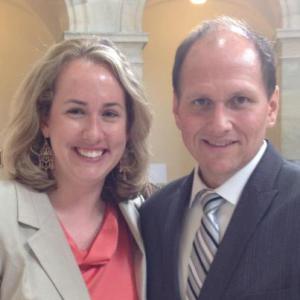 There are some days in life that simply amaze you. Yesterday was one of them for me. I found myself on the floor of the Senate praying the opening prayer of the day as the guest chaplain via invitation from Chaplain Black after a nomination from Senator Jim Webb of Virginia.
There are some days in life that simply amaze you. Yesterday was one of them for me. I found myself on the floor of the Senate praying the opening prayer of the day as the guest chaplain via invitation from Chaplain Black after a nomination from Senator Jim Webb of Virginia.
It was a humbling honor, especially as I learned that this is only the second time in Senator Webb's six-year tenure that a pastor he has nominated has been selected. But, why me? I am by no means a pastor of "large" church in Virginia. We are small but mighty at best. I am still young in my vocational career and by no means a seasoned pastor with 20 or more years of experience. I could have thought of dozens and dozens of other clergy leaders more qualified for such an opportunity. However, it seemed to me to be a case of being in the right place at the right time and God doing what God does best: surprising us all.
Almost a year ago now, I filled in as pastor of a wedding. It wasn't just any wedding, but for my husband, Kevin's former roommate, Trevor. Trevor was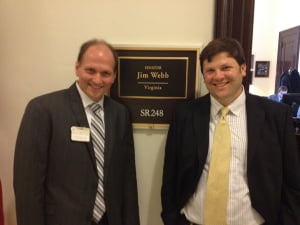 marrying Traci and we were scheduled to attend as guests at this out-of-town event. Trevor and Traci asked me to pray in the service. Senator Webb, Trevor's boss, as he now works on the hill as the Senator's Chief Counsel, was to lead the ceremony. However, due to the budget crisis of last summer and the potential government shut down, the Senator could not leave town. And so the week before, I became the minister solo. It was a fun day for all and great material for opening remarks that I did not look like the Senator (who was listed in the program). I was glad to support our friends at this important life event as weddings are just a part of what pastors do.
marrying Traci and we were scheduled to attend as guests at this out-of-town event. Trevor and Traci asked me to pray in the service. Senator Webb, Trevor's boss, as he now works on the hill as the Senator's Chief Counsel, was to lead the ceremony. However, due to the budget crisis of last summer and the potential government shut down, the Senator could not leave town. And so the week before, I became the minister solo. It was a fun day for all and great material for opening remarks that I did not look like the Senator (who was listed in the program). I was glad to support our friends at this important life event as weddings are just a part of what pastors do.
A couple of months ago I got an email from our friend Trevor asking if I would like to offer a prayer on the Senator floor as a guest chaplain. "Sure," I said, not knowing much about the process or even if it would come to be. There was concern from the Senator's staff that my nomination, even if it was accepted would not make it through the process before Senator Webb's term ended this year. I really didn't think much of it at all, while thankful for the Senator and my friend's kindness.
Then, a week ago, I got a call. The phone rang at the church and the caller ID on my phone said, "US SENATE." What? It was no joke, but was Chaplain Black's Chief of Staff. Saying: "We have an opening for a guest chaplain next Thursday. Can you come?" Eagerly I said "Yes" and called Kevin right away hoping that he would be in town to come with me. And, he was! This would be something we would get to do together. How cool!
Then, yesterday, as we arrived, I learned that it has only been in the last 10 years that female clergy have been invited onto the floor to pray. And I got several jokes from the staffers how they knew they were getting old when "The guest chaplains look like teenagers." But, nonetheless, I was there.
Though I am not the type that says things like, "Everything happens for a reason" (because life just isn't this simple), I was truly tempted to say this yesterday. Because our visit to visit to Capitol Hill felt like a "such a time as this" sort of moment that we couldn't have dreamed up if we tried!
As many of you know, Kevin is now working as the CEO of a large non-profit called, Feed the Children, a large international organization that feeds over 350,000 families in the US each year and 350,000 school aged children in 10 developing countries around the world. As you can imagine, there are natural connections to the great work Feed the Children does to what goes on Capitol Hill.
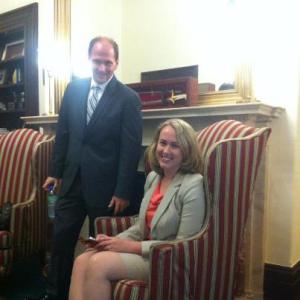 And so what an opportunity, Kevin had to say, "My wife is going to be the guest chaplain for the day" to enter into some get-to-know you meetings with some of the influential law makers that could potentially substantially increase the number of children and families that receive help from feeding programs around the world. We had some great conversations with senators and staff and I am thrilled about the future of Feed the Children's work and some new supporters who will help them further their mission of "no child going to bed hungry." Doors were opened yesterday for ongoing conversation and friendship which is never a bad thing.
And so what an opportunity, Kevin had to say, "My wife is going to be the guest chaplain for the day" to enter into some get-to-know you meetings with some of the influential law makers that could potentially substantially increase the number of children and families that receive help from feeding programs around the world. We had some great conversations with senators and staff and I am thrilled about the future of Feed the Children's work and some new supporters who will help them further their mission of "no child going to bed hungry." Doors were opened yesterday for ongoing conversation and friendship which is never a bad thing.
In the end, I fully recognize yesterday was not about me. It was about being a vessel of the work that God has prepared for us to do: Kevin and I together. And, I just showed up and did my part, hoping that the outfit I picked out would have made my beloved fashionista Grandmother (God rest her soul) proud.
One of my favorite scripture verses in Ephesians 3 says, "With God's power working in us, we can do more than we could ask for or imagine." To this I say, amen, feeling as though our day of "Hagans on the Hill" was an amazing gift of scripture lived out in front of our eyes. It's a happy place to be when you say with your life, "God, surprise me." Because God will!
 I've been thinking a lot lately about the blessings of life, in particular how much I have to be grateful for. Though it's not that season when gratitude is what we normally to talk about (several more months to November!), I've been taking stock of how much I really do have to be thankful. Light has come to some really dark places in my life and in the lives of those I love the most and for this I can't help but name aloud the Lord's provisions.
I've been thinking a lot lately about the blessings of life, in particular how much I have to be grateful for. Though it's not that season when gratitude is what we normally to talk about (several more months to November!), I've been taking stock of how much I really do have to be thankful. Light has come to some really dark places in my life and in the lives of those I love the most and for this I can't help but name aloud the Lord's provisions.
And this is what I know: if we wait long enough and wait some more, I do believe that God will meet all our needs in accordance with the people we were made to be! This is not to say that every unresolved situation in and around us get resolved. No, but it does mean that we are given what we need to keep going, to take the next step. I call this provision: God's love for us.
So, today I wanted to share some of the things currently on my gratitude list. Maybe it will encourage you to make one too.
So, today I give thanks. I give thanks for all of these things, all of God's provisions. And I give thanks for you, my faithful blog readers for letting me share more of my story with you each time I post. I am blessed.
And you- what can you say "thank you, thank you, thank you" for today? Anne Lamott said once that this is the best prayer of them all!
 It is a popular question to ask pastors or religious leaders in general: "How do I know God's will for my life?" or "How can I know what God wants me to do?" Just as folks go to the doctor to figure out what is wrong with them when they are sick, it's pastors that suddenly get so popular when life's confusing crossroads hit.
It is a popular question to ask pastors or religious leaders in general: "How do I know God's will for my life?" or "How can I know what God wants me to do?" Just as folks go to the doctor to figure out what is wrong with them when they are sick, it's pastors that suddenly get so popular when life's confusing crossroads hit.
For me, when I get asked questions like this, I usually feel inadequate (not because I didn't go to seminary or take lots of pastoral care classes) but because it is as if the questioner is asking me to play the role of God in their life, telling them what they are to do as they face difficult decisions.
At heart, I see the role of a pastor to be that like a spiritual director, but even a deeper relationship than that a counselor has with their clients: an intentional relationship between a people and one called out to lead of figuring out what it means to find the presence of God in community. And so, the pastor still serves in the role of learner as much as he or she does as teacher. Thus, for any pastor to give a specific answer to "This is what God wants from you" with complete authority can often be off base and misstated. One of my favorite prayers from Thomas Merton speaks of the fact that as much as we think we are doing God's will, we may not be.
So, if even pastor types can not speak definitively for God with absolute certainty, then how can we know? How can we discern God's steps for us when we reach junctures of big decisions?
I would have once answered this question by saying large amounts of time need to be offered up to God sitting quietly in the woods or taking residence in prayer closets. I would have said that if you diligently search the scriptures, an answer from the pages would come. Or, I would have said that if the decision leads to more folks coming to know of Christ, then of course it was the right one (can you tell I used to be an evangelical?).
But, as I've grown in faith, I've come to see a way of discernment that doesn't always have to include words shouted from the heavens with my name in them or having moments of great epiphany in prayer. It's actually much more messy than this. Sometimes as much as we think we know, we don't. My spiritual director always says meaning is revealed (to which I find frustrating of course).
Sometimes, actually often times, discernment for me now looks like the simple practice of putting one step in front of another and seeing what comes. Knowing that as I go down a path, the Spirit can be trusted to show me where I am to be and where red flags are shouting "stay away, go the other direction."
Sometimes discernment comes in a word of a friend that I can't seem to get out of my mind.
Sometimes discernment comes as intuition that I believe from my heart that can't be shaken, no matter what occurs.
Sometimes discernment comes as pieces of a life direction falling together in ways that I know I could never dream up or orchestrate on my own even if I tried.
Though I am often not much help to those who come to me seeking "the answer" to their troubles, hopefully what I can do as a pastor, as a friend, as a wife is to listen, to say what I hear and hope for the Spirit to make clear what needs to rise up and what needs to fall away. Because after all, this is what faith community is at its best. For as much as I can be this for fellow travelers on the journey, I need the same folks to do this for me too.
What does discernment look like? It looks like me walking alongside you, you walking alongside me with open eyes, attentive feet and ears to hear "This is the way, walk in it."
As I watched tears flow down cheek after cheek during the pastoral prayer on Mother's Day while serving at the pastor of Washington Plaza Baptist Church, I thought anew about the concept of celebrations days not being so celebratory for many.
This was the prayer we were praying:
Mothers come in many different forms, and today we celebrate them all!
Thank God for mothers!
For those women who have joined God in heaven and whom we miss dearly here on earth.
Thank God for the mothers of the past.
For every woman who is raising her children now making sacrifices for her children’s becoming.
Thank God for the mothers of today.
For those women who have taken in others’ children through adoption and foster care, showing us that the love of God far extends beyond biological ties.
Thank God for the mothers with hearts so big.
For those women who have lost a child to death or want to have a child know they can’t, carrying on with the pain of lost dreams.
Thank God for the mothers who are so strong.
For all the women who are “mother hens” in our community; who nurture us, support us and guide us in our becoming.
Thank God for the mothers in spirit.
We thank you, Lord, for the women who have influenced our lives in so many ways.
We pray that we will honor them in everything we do. Amen.
********************************************************
On this day, even with the sensitivity to all types of mothers in my congregation, there was still much sadness. An entire day on the cultural calendar set to honor mothers just seemed like a slap in the face to the pains deep within many of loss!
Yet, such experiences, I know, are not limited to Mother's Day alone. Father's Day can be quite difficult as well as Christmas, Easter, and even Valentine's Day.
For example, I've had single friends tell me that even if they are happy with the state of their social lives, the romantic love fest of Valentine's Day seems to be like one huge slap in the face as if something wrong with them.
And this is the truth I know: for as much as any day of our life is joyous, it is sad for another. As much one day is painful for us, there is hope being birthed anew in our neighbor. And, this is the human story. And, in the body of Christ, we are able to become more human by having community to understand this story.
Let us not be sad or simply happy, but let us be a community that holds one another life experiences and emotions in our hearts so that we may truly come to understand what it means to be woven together as one family.
I truly believe we need each other on days like Mother's Day. We really do.